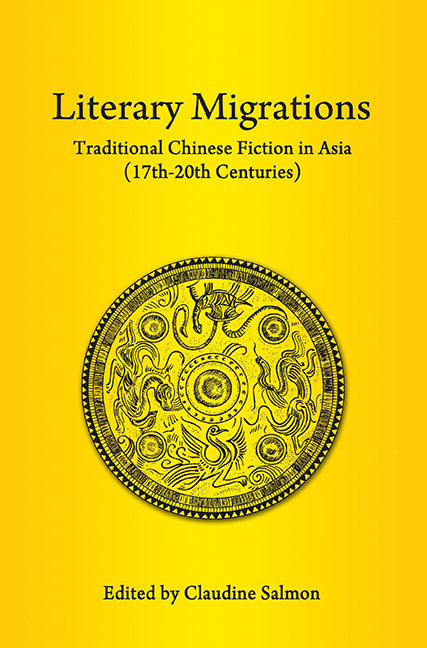Book contents
- Frontmatter
- Contents
- FOREWORD
- Dr Salmon as I Know her
- Preface to Reprint Edition
- Acknowledgements
- INTRODUCTION
- PART I KOREA AND JAPAN
- PART II MAINLAND NORTHEAST ASIA
- PART III MAINLAND SOUTHEAST ASIA
- PART IV INSULAR SOUTHEAST ASIA
- Bibliography
- Author, story-teller and translator index
- Title index
- List of Plates
- Contributors
- Plate section
INTRODUCTION
Published online by Cambridge University Press: 21 October 2015
- Frontmatter
- Contents
- FOREWORD
- Dr Salmon as I Know her
- Preface to Reprint Edition
- Acknowledgements
- INTRODUCTION
- PART I KOREA AND JAPAN
- PART II MAINLAND NORTHEAST ASIA
- PART III MAINLAND SOUTHEAST ASIA
- PART IV INSULAR SOUTHEAST ASIA
- Bibliography
- Author, story-teller and translator index
- Title index
- List of Plates
- Contributors
- Plate section
Summary
Western scholars have devoted a number of studies to traditional Chinese fiction, but on the whole they seem to have approached it as an entity inside the political borders of China. Few have attempted to cross these boundaries and reflect on the impact of Chinese fiction in neighbouring countries. Yet, the Chinese language and Chinese script have been used for centuries in countries like Korea, Japan and Vietnam, and Chinese literature began to spread in these areas very early, beginning with the Confucian classics, Buddhist sūtras and Chinese poetry.
In dealing with European literature, scholars have always been eager to trace the various borrowings and dwell on the influence of new genres on the development of the different national literatures, but up to now this comparative approach has hardly ever been applied to the cultural region of the Far East. The Tamkang Review (Taibei 1970–), apparently the only journal in English devoted to comparative study of Chinese and foreign literatures, did publish a special issue directing researchers’ attention to the influence of Chinese literature in Korea, Vietnam, Japan and the Philippines. Two articles raise the question of the literary relationships between China on the one hand and Korea and the Philippines on the other; two others focus on the adaptation and imitation of particular Chinese novels. Of course the specialists in Korean, Japanese, Mongolian and Manchu literature have dealt with the problems of Chinese borrowings and influences for decades. They contributed the greatest part of the extant literature on the subject in both Western and Asian languages.
We thought it would be enlightening to study how traditional Chinese fiction penetrated into neighbouring countries, how it was received and eventually how it inspired local writers. In the Sinicized countries where the local elite was trained in classical Chinese and could more or less understand colloquial Chinese, this kind of fiction was read in the original text. However, very early, local scholars and writers translated, adapted and even imitated Chinese fiction. er country.
- Type
- Chapter
- Information
- Literary MigrationsTraditional Chinese Fiction in Asia (17th–20th Centuries), pp. 1 - 36Publisher: ISEAS–Yusof Ishak InstitutePrint publication year: 2013



